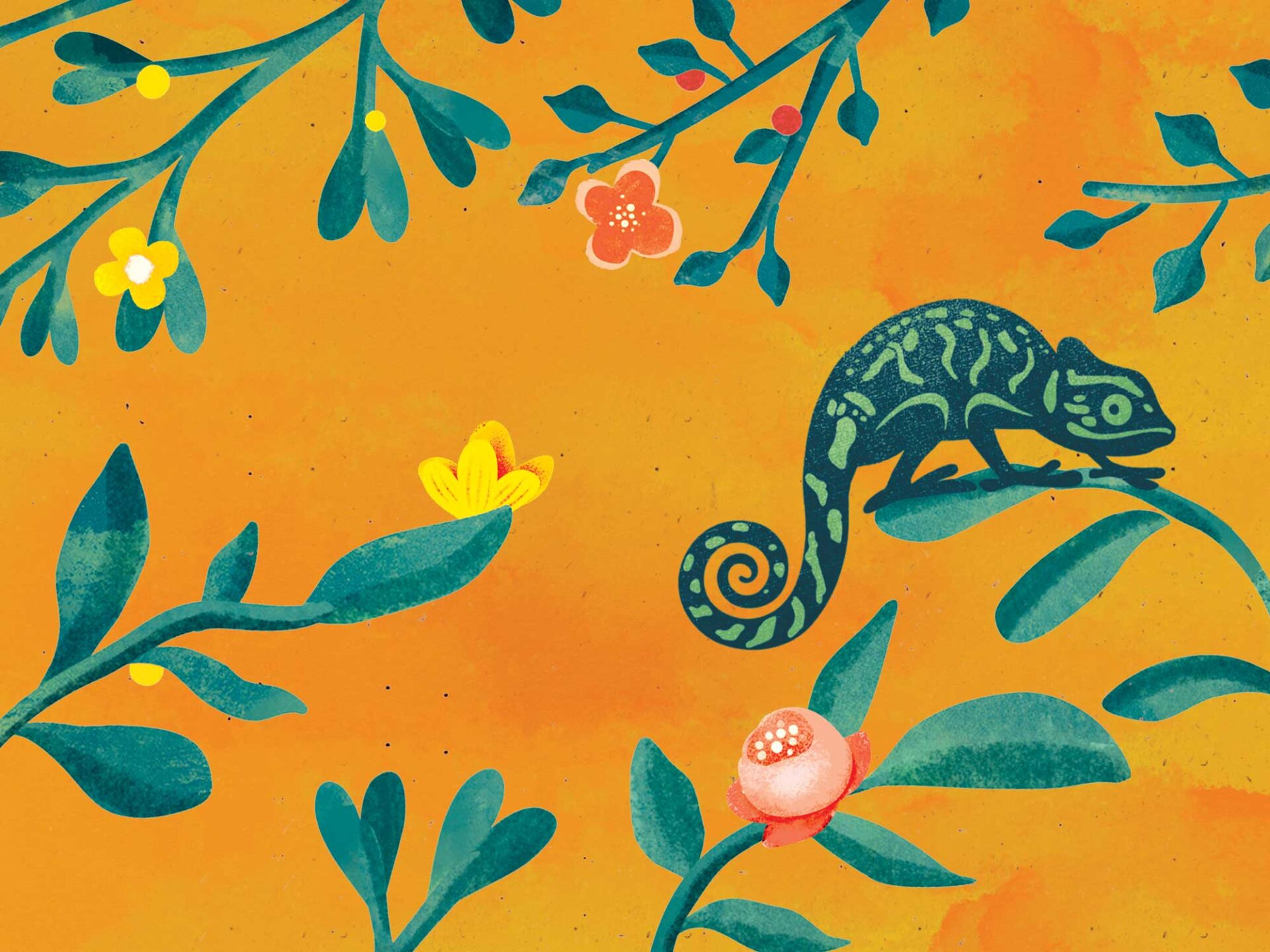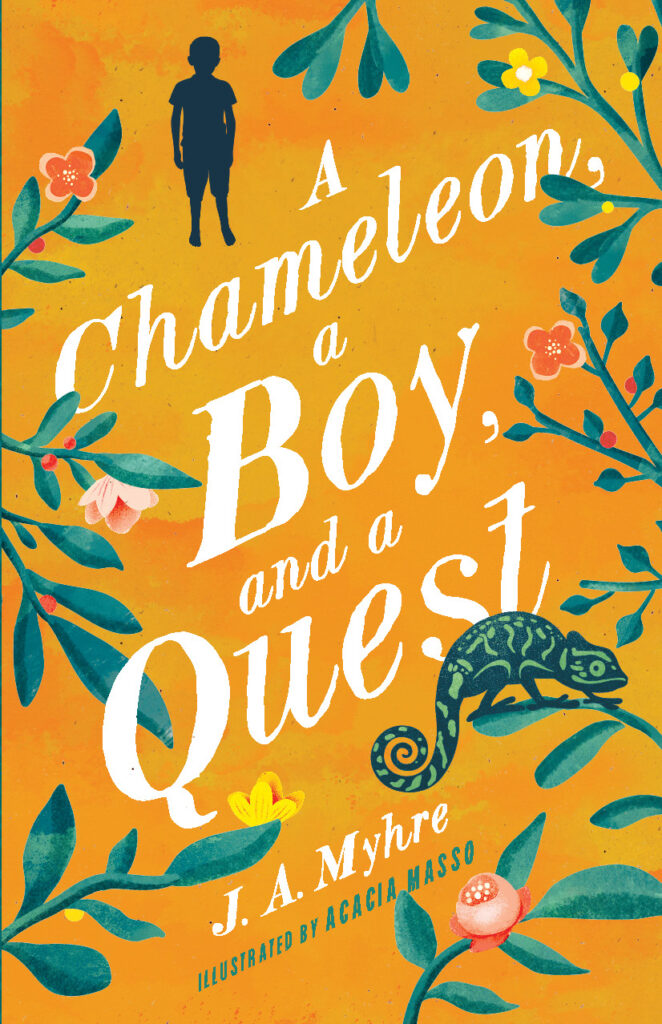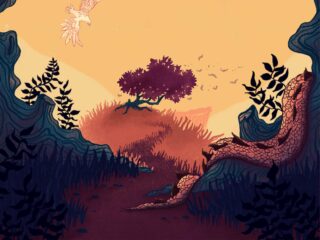We are sure you know about most of our various series of young children’s picture books, but are you familiar with The Rwendigo Tales for ages eight and up?
Written by J. A. Myhre, a missionary with Serge and doctor living and working in East Africa, the four books in the series teach readers of all ages important truths about justice, overcoming evil, and the courage to make a difference. Young readers will be inspired by ordinary people who make the extraordinary choice to stand against great evil.
The first book, A Chameleon, a Boy, and a Quest was written for ages 8-12 when Myhre’s own children were around the same age, but as the children grew, the reading level from book-to-book matured as well (ages 11-14+). These stories were written for preteens and teens who love reading and learning about faraway and different parts of the world. Myhre explores significant social and spiritual issues throughout The Rwendigo Tales, and because of her own life experiences in East Africa, the series is full of rich world building and compelling storytelling for readers of all ages.
To kick off the summer, we’d like to offer you a preview of A Chameleon, a Boy, and a Quest.
An Unlikely Adventure Begins
The day the chameleon spoke to Mu did not begin with any hint of the extraordinary. Mu woke to the falling trill of a forest kingfisher, followed by the rhythmic coos of the ring necked dove and finally the raucous twitters of an unruly weaver bird colony. He knew that he should have been heading for the communal water tap sometime between the dove and the weaver birds, but this morning as every other he lay awake staring at the pattern of tiny fissures in the packed mud wall of his house as the lines emerged in the gray light of dawn, seeing yet not seeing, waiting for some pattern to coalesce into a message that made sense of his young life. As usual the language of the lines remained obscure. He tried to ignore the restless movement of his cousins in the narrow bed they shared, and he sighed in resignation when the voice of his great-aunt broke through the weaver bird chatter calling him to get moving.
Sometimes in that moment between sleep and wakefulness, Mu forgot that the hated morning task of water carrying awaited him, forgot the apparent shame of doing what was commonly held to be girls’ work. He forgot his worries at school where he had started years late and was therefore the obvious target of many jokes and pranks. He could still feel the warmth of a sympathetic arm on his shoulders for a few seconds . . . until it faded into the world of dreams and memory and left him alone.
Mu rose from the bed, pulled on his shirt and a pair of shorts, reached for the doorway in the dimness of the new day, pushed aside the curtain, and emerged just as the rising sun tinged the clouds pink. He found an empty twenty-liter jerry can just inside the doorway of the cooking hut where he had left it the night before, and then swung it in wide empty arcs as he started down the path toward the piped water his family shared with a half dozen other homesteads in the village. The faded yellow plastic of the container glowed faintly against the black-greens of the thick foliage on either side of the path. He thumped the empty can on its forward arc a few times before thinking better of making such an ominous noise at that hour, though the temporary freedom of the lightness of his burden tempted him to beat out a song. In a few minutes he would be returning with a sloshing weight of water that he could barely drag in a stilted, hopping walk with rests every ten steps. Right now the cool sharpness of the morning, the loneliness of the path, and the absence of the inevitable weight all filled him with a sense of something, a premonition close to joy but tinged with a darker hue, perhaps danger. He felt the slant of the morning sunlight through the palm fronds as a deep ache of the heart, a longing for something he couldn’t begin to name. At that precise moment he sensed more than heard a clear voice calling his name, right there on the path, and he stopped abruptly to trace the source of the salutation.
The voice did not come from behind him where his home lay, or ahead where a few girls would be waiting their turns at the tap. The call seemed to come from just over his right shoulder. Mu lifted his eyes to the red leaves of a poinsettia bush; then the small clear voice continued, “Please, Mu, you must be careful how you swing that jerry can, you nearly knocked me right off my branch.”
Mu spun around to see who could possibly be playing such an early morning trick on him, at first wildly searching then recovering and trying not to look shamefully frightened or overly startled. He saw no one.
“I’m right here, on this branch. Here, let me darken my color a bit so that you can see me.”
As Mu watched, his eyes gradually made out the poised form of a chameleon against the bright green poinsettia stems. Mu stated the obvious, “Chameleons can’t talk.”
“Ahh, that is where you are wrong. It is humans who can’t listen,” replied the chameleon. “If we are to be friends let us begin again. I was waiting for you, but when you came swinging that plastic monstrosity I am sorry to say I dispensed with polite formalities and went straight to the point of saving my skin. Ahem . . . Olayo, Mu, how was the night?”
“How was the night?” came Mu’s automatic reply, the greeting formula second nature to him as to every other person in the village.
“What’s the news?”
“All is peaceful.”
“There, that’s much better. Ah, where were we, how are those at your home?”
“They are there. And how are those at yours?”
“They are there.”
Mu waited, but the chameleon simply blinked and swept his eye around in a jerky circle. Being a child, Mu had already accepted that this remarkable chameleon could indeed talk, had chosen to speak to him of all people, and in fact knew his name. He sensed instinctively that this chameleon was an elder of some sort, a creature with experience who should command respect. So, in the role of a child with an adult, he waited. As he watched, the chameleon shot out his sticky tongue and nabbed a sleepy fly that had just landed on the poinsettia flower.
“Excuse me,” continued the chameleon, chewing, and gulping. “It’s a bit early for us cold-blooded creatures to be up and about, but when I spotted that fly, I remembered my hunger, and it is never good to start a journey on an empty stomach.”
“Journey?” asked Mu in a baffled voice. “Where are you going?”
“Why, on your quest, of course. I’ve been sent to announce its beginning.”
“Quest? Quest for what? And sent by whom?”
“All that in good time. First, I must try not to get you into too much trouble, and if you aren’t back soon you’ll be missed. Run along and get your water. On the way back, stop for me and I’ll ride home on your shoulder. I’m quite adept at making myself difficult to see, so you needn’t worry about alarming anyone. I would advise you, for now, not to mention me to anyone.” The chameleon rocked back and forth on the stem, mimicking the swaying of the breeze, and then blended so expertly into the foliage that to Mu he seemed to disappear.
Mu ran to the water tap and slapped his jerry can down in the growing line. As he waited, he repeated the entire conversation in his mind. He’d heard strange stories from his uncle, stories of spirits bent on evil, who inhabited snakes and rats and other creeping beings for periods of time to wreak their mischief. Chameleons were especially feared, since it was quite clear to most people that the dramatic changes in the coloration of their skin must be due to the passing inhabitation of ancestral spirits. But Mu did not sense any malicious intent from the chameleon. He made up his mind to pick the chameleon up (he had never actually touched one before) and carry it home on his shoulder.
His conversation with the chameleon had delayed him, so that when he put his jerry can in the line at the tap he was already fourth. He murmured polite greetings to those ahead of him, two sleepy-eyed neighbors who were younger than he and one bossy teenage girl who always made a point of teasing Mu.
“How was the night, Mu?” she asked with false interest.
“Peaceful,” Mu mumbled, eyes on the line of jerry cans as he advanced one place.
“You were so late that we thought you weren’t coming. In fact we were just discussing that maybe your aunt finally made one of her daughters fetch water so you could sleep later with the boys.”
Mu felt the boil of anger begin to seethe in his heart, the laughter of the three girls burning a familiar pain in his chest.
“I’ll tell you why I’m late,” Mu began, imagining their stunned faces when he took them to see an actual talking chameleon, one that knew his name, no less. But just as he began to explain that he had been chosen for a quest, a small voice reminiscent of the chameleon’s echoed in his mind: “I would advise you, for now, not to mention me to anybody.” A smudgy cloud of doubt formed. Why shouldn’t he tell? Would others be able to hear the chameleon too? Or would he find himself being laughed at as an even greater fool after dragging them along the path searching for a chameleon that could not be found, let alone heard to produce human speech? And what if the whole conversation had been a dream that had crept from his sleep into his waking and walking down the path, a remnant of those nighttime escapes from reality? What if he really was just a ten-year-old boy in the first year of primary school learning the alphabet with a bunch of babies and carrying water with a bunch of girls? What if he had not been singled out for an adventure? Suddenly he became aware that the laughter had stopped, in fact the three girls had left with their containers of water and the school teacher’s mother-in-law was telling him to wake up and get out of her way before the water overflowed his jerry can.
Back down the path Mu lurched. He often tied a cloth through the handle of the can and passed it over his forehead to hoist the twenty-kilogram load onto his back, but today he couldn’t be bothered to take the extra time, and he hardly noticed the dragging weight. He paused under the poinsettia and set down the dripping jerry can.
There was no chameleon on the branch that overhung the path.
He traced the branch with his eyes, then reached up with his hand to part the veiny red leaves and inspect each stem. No chameleon. Tears welled up in Mu’s eyes.
Just as the first sniffle began to break through, he heard his name and saw with relief that the chameleon had picked his way down low on the branch where he rocked, waiting within easy reach.
“Mu, I’m here. From now on you don’t have to worry, I won’t leave you until you ask me to go.”
“Oh, I’ll never ask you to go!” Mu exclaimed with feeling.
“Don’t be so sure, the future holds many things, and a companion such as I can be a liability in certain situations. Now please do NOT SQUEEZE me, I am still digesting that fly and a small grasshopper. That’s it, put me on your shoulder and I shall hold onto your shirt just under the collar here where no one will notice. Off we go.”
“What should I call you?” Mu asked as he started off again with a grunt, heaving the water along. He felt he should use a term of respect such as father or uncle or mzee, but nothing in his life to that point had given him a clue about the proper terms of respect when addressing a chameleon.
“Ah, names—names and relationship are always an issue with your kind, but my true name will be difficult for you and much too long. You may call me Tita, though I do not look like your father or your uncles, I have been sent in a role not unlike theirs.”
“I never saw my father, but you certainly are nothing like my great-uncle,” Mu giggled, though as he thought of it the coarsely wrinkled skin and darting eyes of his elderly uncle did have a reptilian quality.
“Your name seems a bit odd, my boy. Who gave it to you?” Tita inquired kindly.
“My cousins say that I called myself Mu when I was brought here after my parents died. My great-uncle says it is short for Mubhi, orphaned one. My cousin Nanjula read a book where the main character was named Pi, and she says Mu is another Greek letter, and maybe that means I am someone important.”
“Hmmm, very interesting,” murmured Tita.
“Tita, will you go to school with me, or should I find you a safe bush before we reach our compound where you can stay until school is over?”
“Mu, there is so much to tell, and events have already been set in motion. I don’t know when the Enemy will make his first move. It is best that you keep me with you.”
Before Mu could even think of asking who in the world the ominous Enemy was, they had reached the edge of his compound, which now bustled with morning activity. His great-uncle and great-aunt sat on low benches by a smoking fire, poking sticks into the embers to encourage the flames. Most of his cousins were emerging drowsily from their sleeping quarters. Two were arguing over a school uniform shirt that each claimed; his aunt Sylvia stirred porridge over a fire in the kitchen hut, and his other aunt, Alice, was complaining loudly that he came later and later with the water every morning. In short, except for the almost imperceptible weight of the chameleon on his right shoulder, it was like any other morning. Mu smiled to himself as he set down the jerry can of water, and might have looked upon the scene with a trace of nostalgia or tenderness had he known it would be his last morning at home.
Excerpted from A Chameleon, a Boy, and a Quest © 2015 by J.A. Myhre. Used with permission of New Growth Press. May not be reproduced without prior written permission.
A Chameleon, a boy, and a Quest
Ten-year-old Mu, orphaned as a toddler, has lived his entire life in the heart of Africa. On his way to draw water one morning, Mu is astonished when a chameleon greets him by name and announces that they will embark on a quest together. And what a quest it turns out to be! Mu faces danger and finds unexpected allies as they journey through an ever changing landscape.






